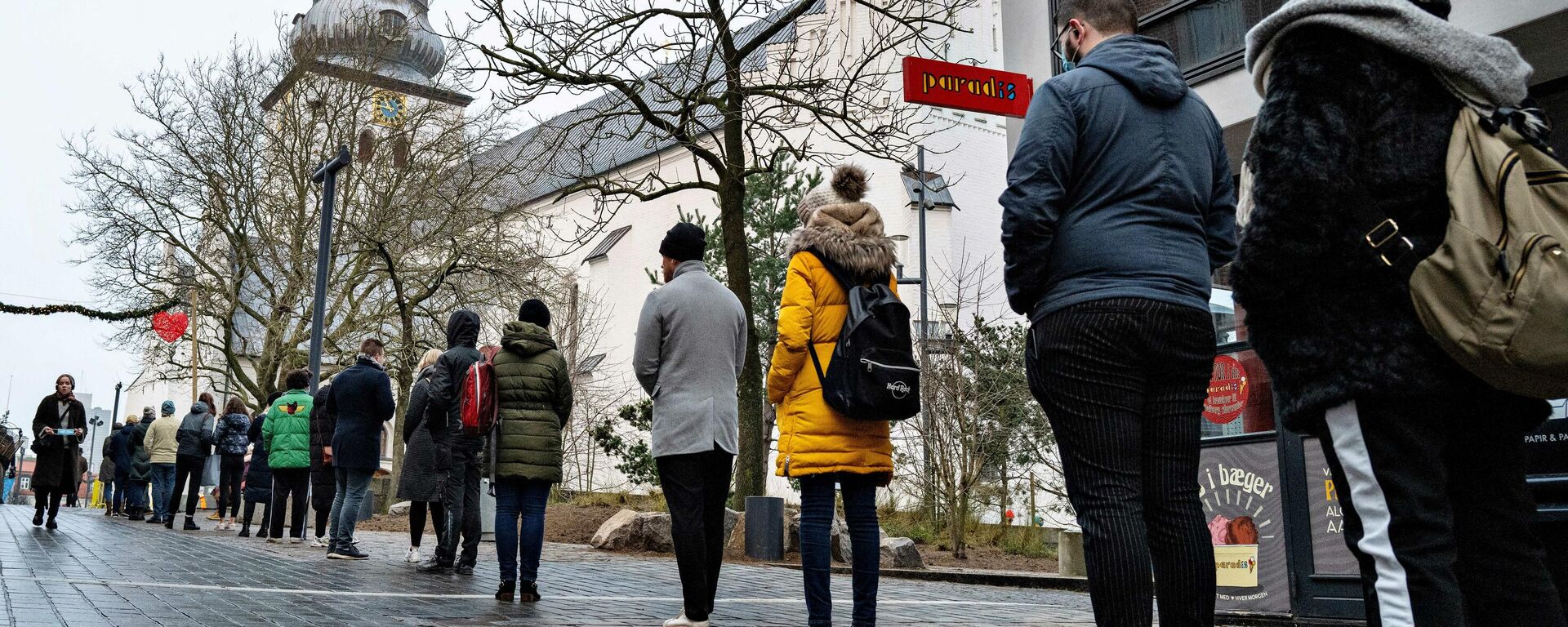https://sputnikglobe.com/20230120/chronic-effects-of-covid-19-most-prevalent-among-well-educated-women-study-finds-1106511214.html
Chronic Effects of Covid-19 Most Prevalent Among Well-Educated Women, Study Finds
Chronic Effects of Covid-19 Most Prevalent Among Well-Educated Women, Study Finds
Sputnik International
One explanation could be that this type of women are generally more aware of their health and don’t hesitate to seek medical help
2023-01-20T09:20+0000
2023-01-20T09:20+0000
2023-01-20T09:20+0000
science & tech
denmark
scandinavia
news
covid-19
health
europe
women
https://cdn1.img.sputnikglobe.com/img/105342/90/1053429012_0:43:1920:1123_1920x0_80_0_0_008f517356f28af10fd927a122d2e16f.jpg
Although a receding memory for most, the COVID-19 epidemic has maintained its debilitating grip on a particular group of people.A new study by the Defactum research group in Denmark's Central Jutland Region and Aarhus University Hospital indicated that those still seeking medical help for the chronic effects of COVID-19 are predominantly made up of well-educated women aged between their mid-thirties and sixties. In their study of 448 patients seeking help for late effects, 75 percent were women.In the study, three out of four patients suffered from moderate to overwhelming mental fatigue, and half were on protracted sick leave. Respondents also admitted to a feeling of "mental fog" and said they had trouble concentrating, keeping pace with a conversation, and felt dizzy.Overall, the list of complaints associated with long COVID and its chronic effects includes everything from shortness of breath, coughing and chest pain to depression, muscle pain and skin rash.Occupational therapist and senior researcher Lisa Gregersen Ostergaard described the women as "doing well in their career, and having a family life".So far, the researchers are unclear as to why exactly this particular group has been affected. One explanation could be that well-educated women are generally more aware of their health and don’t hesitate to seek medical help once something goes wrong."It may very well be that they experience problems to a large extent. But it could also be that we see a group who are a little more apt at navigating the healthcare system," Ostergaard suggested.Previously, the Danish Health Authority and the World Health Organization (WHO) estimated that around 10 percent of people who had COVID can expect some form of chronic effect. With the new strains in place, Ostergaard estimated that their share has fallen to around 5 percent.Overall, Denmark, which has a population of 5.8 million, witnessed 3.4 million COVID-19 cases and more than 8 000 deaths.Worldwide, an estimated 670 million cases of coronavirus occurred, with more than 6.7 million deaths.
https://sputnikglobe.com/20220321/denmark-claims-to-have-reached-herd-immunity-against-covid-19-but-for-how-long-1094042848.html
denmark
scandinavia
Sputnik International
feedback@sputniknews.com
+74956456601
MIA „Rossiya Segodnya“
2023
News
en_EN
Sputnik International
feedback@sputniknews.com
+74956456601
MIA „Rossiya Segodnya“
Sputnik International
feedback@sputniknews.com
+74956456601
MIA „Rossiya Segodnya“
covid-19 pandemic, late effects, long covid, medical help, medical assistance, covid symptoms
covid-19 pandemic, late effects, long covid, medical help, medical assistance, covid symptoms
Chronic Effects of Covid-19 Most Prevalent Among Well-Educated Women, Study Finds
Researchers remain uncertain as to why, precisely, this particular group of women stand out. One explanation could be that these women are generally more aware of their health and don’t hesitate to seek medical help.
Although a receding memory for most, the COVID-19 epidemic has maintained its debilitating grip on a particular group of people.
A new study by the Defactum research group in Denmark's Central Jutland Region and Aarhus University Hospital indicated that those still seeking medical help for the chronic effects of COVID-19 are predominantly made up of well-educated women aged between their mid-thirties and sixties. In their study of 448 patients seeking help for late effects, 75 percent were women.
In the study, three out of four patients suffered from moderate to overwhelming mental fatigue, and half were on protracted sick leave. Respondents also admitted to a feeling of "mental fog" and said they had trouble concentrating, keeping pace with a conversation, and felt dizzy.
Overall, the list of complaints associated with long COVID and its chronic effects includes everything from shortness of breath, coughing and chest pain to depression, muscle pain and skin rash.
Occupational therapist and senior researcher Lisa Gregersen Ostergaard described the women as "doing well in their career, and having a family life".
"So it is about women who are in a place in life where a lot happens," she told Danish media. "They have been used to being active, such as going for walks or working out. But they simply can't do that anymore," Ostergaard added.
So far, the researchers are unclear as to why exactly this particular group has been affected. One explanation could be that well-educated women are generally more aware of their health and don’t hesitate to seek medical help once something goes wrong.
"It may very well be that they experience problems to a large extent. But it could also be that we see a group who are a little more apt at navigating the healthcare system," Ostergaard suggested.
Previously, the Danish Health Authority and the World Health Organization (WHO) estimated that around 10 percent of people who had COVID can expect some form of chronic effect. With the new strains in place, Ostergaard estimated that their share has fallen to around 5 percent.
Overall, Denmark, which has a population of 5.8 million, witnessed 3.4 million
COVID-19 cases and more than 8 000 deaths.
Worldwide, an estimated 670 million cases of coronavirus occurred, with more than 6.7 million deaths.


